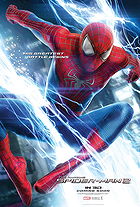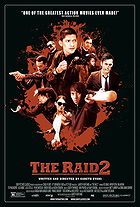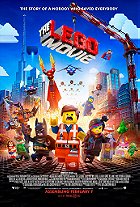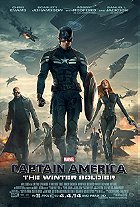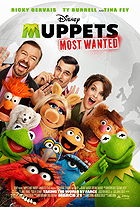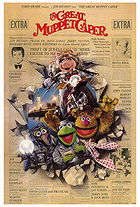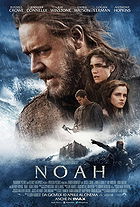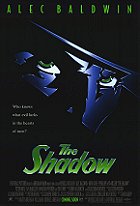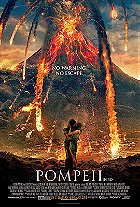Based on the novel by Veronica Roth, 2014's Divergent is yet another attempt to adapt a young adult novel series for the big screen, following in the shadow of Twilight and The Hunger Games. But rather than a promising opening instalment in a potential franchise, Divergent is a total misfire, crippled by an air of utter blandness all the way through to its core. It's perhaps marginally more watchable than the apocalyptic disaster that this reviewer had anticipated, but that's hardly a ringing endorsement. Although the seeds of an interesting story are here, director Neil Burger fails to give adequate life to the material, resulting in a lethally dull, plodding, agonisingly overlong sci-fi effort featuring a cast of wooden underwear models.

In the aftermath of a devastating nuclear war that crippled the world, humanity is reborn into a tightly-ordered society split into five factions: Abnegation, Amity, Candor, Dauntless, and Erudite. As children reach adulthood, they are compelled to choose their faction, undergoing a test that recommends their destiny. An Abnegation native, Beatrice (Shailene Woodley) is tested and deemed to be Divergent, meaning her personal drive goes beyond the factions, and she cannot be controlled. Covering up the truth in fear of lethal repercussions, Beatrice chooses Dauntless as her new faction, rechristening herself under the name of Tris as she commences a gruelling training regiment designed to weed out the weak. Immediately, Beatrice stands out to leader Four (Theo Games), who offers warmth as she struggles to find her place and keep her secret hidden. Added to this, Erudite's ultimate plan for Dauntless is gradually revealed, which compels Beatrice to take action.
Out of all the Y.A. adaptations from the past few years, Divergent is the most formulaic, right down to its structure and messages. Comparisons will immediately be drawn between The Hunger Games and Divergent, as both are sci-fi stories set in a dystopian society featuring a strong female protagonist determined to lead a rebellion against a corrupt government force, and there's romance in the air to boot. The story also adheres to the well-worn formula of using a conventional fantasy/sci-fi setting as a metaphor for the American high school system, and the fact that Beatrice/Tris is different is just an obvious allegory for adolescent problems. After all, Tris doesn't feel that she can fulfil the adult world's expectations of her, and she abhors the society of crushing conformity in which she cannot fit in. So, basically, Tris' experience is what's known as being a teenager, allowing the target demographic to believe that all of their weird personality traits and self-centred angst actually makes them The Chosen One. See how easy and trite all this hogwash truly is? Wasn't this stuff already covered well enough in Twilight? Harry Potter? The Hunger Games? Sure, originality is borderline impossible in this day and age, but would a bit of innovation be too much to ask, especially since these stories are always about standing out from the norm and not conforming?

Divergent is in dire need of a more judicious editor, as it drags on and on for the better part of 140 minutes. While the runtime might seem necessary to flesh out the characters and the story, a lot of flab could easily be trimmed, as the movie feels punishing rather than rewarding as the finish line approaches. Indeed, there are at least four or five climaxes when the movie seems to be on the verge of ending, only for another complication to arise. There's no sense of tension to the build-up, with a large chunk of the runtime dedicated to humdrum training sequences ripped from the likes of Starship Troopers and Ender's Game, while Tris forges relationships with thankless supporting characters who won't matter until the sequel. Scene after scene falls flat, in need of zippier pacing and a sense of momentum that should accompany this dystopian panic.
Despite decent production values, Divergent feels more like a television show pilot as opposed to a big-screen epic. Hell, some sci-fi shows like Almost Human actually have more grandeur than what's glimpsed here. Perhaps one of the film's biggest issues is that this futuristic vision is not engaging or exciting in the least - it's painfully generic, and there's not enough flair to Burger's direction to compensate for the monotonous visual scheme. The Hunger Games at least bothered to green-screen the cast into some type of vision of the future; here, Tris and her pals run around cheap sets and bland ruined city locales. Admittedly, the enterprise does grow more interesting as the action-oriented climax approaches, and Burger handles the shootouts with some competency, but the experience up until this point is too numbing and ponderous that it doesn't matter much in the grand scheme of things.

Although Woodley has proven talent, she's an unremarkable protagonist here, paling in comparison to Jennifer Lawrence. It's unclear whether the blame falls on Burger or Woodley, but Beatrice/Tris is shockingly one-note from start to finish, showing no palpable growth as she develops from meek girl to determined revolutionary. Not to mention, the completely contrived love story between Beatrice and Four gains precisely no traction - rather than a relationship that grows organically, the subplot feels awkwardly shoehorned in for the sake of formula. The rest of the actors are utterly personality-free, and there isn't a bad-looking specimen in sight - the casting call must have explicitly stated "abs required." Theo James is simply one of those Channing Tatum types who's destined to become confused with ten other actors, while Woodley's The Spectacular Now co-star Miles Teller displays the acting prowess of a fire hydrant. Tragically, the proven actors of the cast are mostly relegated to thankless supporting roles. Maggie Q has maybe ten minutes of screen-time with no action moments, while Ray Stevenson achieves precisely nothing and Kate Winslet sleep-walks through a flat villain role. Meanwhile, Ashley Judd does what she can with the material, but watching her run around playing action hero only provokes unintentional hilarity.
The Hunger Games truly found its footing and soared for its 2013 sequel, Catching Fire, and it would be a satisfying surprise to see the planned Divergent sequels attain similar success. As it is, this opening entry is a stillborn, and it's difficult to become at all involved or interested in all the on-screen malarkey. It might work for unfussy viewers as it's watchable from time to time, but there's so much wasted potential here.
4.2/10
 Login
Login
 Home
Home 183 Lists
183 Lists 1670 Reviews
1670 Reviews Collections
Collections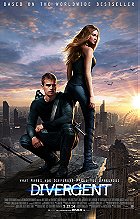
 0 comments,
0 comments, 